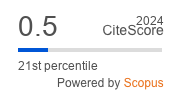Prospectives of T-cells genetic programming in adoptive immunotherapy of malignancies
Abstract
The article reviews the literature on adoptive T-cell therapy of malignancies. Adoptive T-cell transfer allows treatment of metastatic disease on the late stages of certain tumors. The method has a number of advantages before traditional antitumor therapy. The special attention is paid to the possibility of adoptive cells genetic programming, which increases the treatment effectiveness and safety in cancer patients. The article also discusses the method introduction into clinical practice.
About the Authors
O. L. MorozovaRussian Federation
Olga Morozova, Doctor of Medical Sciences, Professor at the Department of Pathophysiology
8/2, Trubetskaya str., Moscow, Russia, 119991
V. V. Yakovlev
Russian Federation
3d year student, the Medical Faculty
N. A. Sushentsev
Russian Federation
3d year student, the Medical Faculty
References
1. World Cancer Report. Available at: http://www.iarc.fr/en/publications/books/wcr/wcr-order.php (accessed March 25, 2016).
2. Rosenberg S.A. et al. Durable complete responses in heavily pretreated patients with metastatic melanoma using T-cell transfer immunotherapy. Clin. Cancer Res. Off. J. Am. Assoc. Cancer Res. 2011; 17(13): 4550–4557.
3. Zarour H.M. et al. Categories of Tumor Antigens. 2003.
4. Weinberg R.A. Crowd Control: Tumor Immunology and Immunotherapy. In: The Biology of Cancer. 2nd ed. USA: Garland Science, Taylor & Francis Group, LLC; 2014: 723–795.
5. Klebanoff C.A. et al. Therapeutic cancer vaccines: are we there yet? Immunol. Rev. 2011; 239(1): 27–44.
6. Rosenberg S.A., Yang J.C., Restifo N.P. Cancer immunotherapy: moving beyond current vaccines. Nat. Med. 2004; 10(9): 909–915.
7. Klebanoff C.A. et al. Determinants of successful CD8+ Tcell adoptive immunotherapy for large established tumors in mice. Clin. Cancer Res. Off. J. Am. Assoc. Cancer Res. 2011; 17(16): 5343–5352.
8. Restifo N.P. et al. Identification of human cancers deficient in antigen processing. J. Exp. Med. 1993; 177(2): 265–272.
9. Restifo N.P. et al. Loss of functional beta 2-microglobulin in metastatic melanomas from five patients receiving immunotherapy. J. Natl. Cancer Inst. 1996; 88(2): 100–108.
10. Khong H.T., Restifo N.P. Natural selection of tumor variants in the generation of “tumor escape” phenotypes. Nat. Immunol. 2002; 3(11): 999–1005.
11. Zhang J. et al. A novel retinoblastoma therapy from genomic and epigenetic analyses. Nature. 2012; 481(7381): 329–334.
12. Stratton M.R. Exploring the genomes of cancer cells: progress and promise. Science. 2011; 331(6024): 1553–1558.
13. Pule M.A. et al. Virus-specific T cells engineered to coexpress tumor-specific receptors: persistence and antitumor activity in individuals with neuroblastoma. Nat. Med. 2008; 14(11): 1264–1270.
14. Robbins P.F. et al. Tumor regression in patients with metastatic synovial cell sarcoma and melanoma using genetically engineered lymphocytes reactive with NY-ESO-1. J. Clin. Oncol. Off. J. Am. Soc. Clin. Oncol. 2011; 29(7): 917–924.
15. Brentjens R.J. et al. Safety and persistence of adoptively transferred autologous CD19-targeted T cells in patients with relapsed or chemotherapy refractory B-cell leukemias. Blood. 2011; 118(18): 4817–4828.
16. Porter D.L. et al. Chimeric antigen receptor-modified T cells in chronic lymphoid leukemia. N. Engl. J. Med. 2011; 365(8): 725–733.
17. Kochenderfer J.N. et al. Eradication of B-lineage cells and regression of lymphoma in a patient treated with autologous T cells genetically engineered to recognize CD19. Blood. 2010; 116(20): 4099–4102.
18. Johnson L.A. et al. Gene therapy with human and mouse T-cell receptors mediates cancer regression and targets normal tissues expressing cognate antigen. Blood. 2009; 114(3): 535–546.
19. Varela-Rohena A. et al. Control of HIV-1 immune escape by CD8 T cells expressing enhanced T-cell receptor. Nat. Med. 2008; 14(12): 1390–1395.
20. Parkhurst M.R. et al. T cells targeting carcinoembryonic antigen can mediate regression of metastatic colorectal cancer but induce severe transient colitis. Mol. Ther. J. Am. Soc. Gene Ther. 2011; 19(3): 620–626.
21. Sadelain M., Brentjens R., Rivière I. The promise and potential pitfalls of chimeric antigen receptors. Curr. Opin. Immunol. 2009; 21(2): 215–223.
22. Morgan R.A. et al. Case report of a serious adverse event following the administration of T cells transduced with a chimeric antigen receptor recognizing ERBB2. Mol. Ther. J. Am. Soc. Gene Ther. 2010; 18(4): 843–851.
23. Baeuerle P.A., Itin C. Clinical experience with gene therapy and bispecific antibodies for T cell-based therapy of cancer. Curr. Pharm. Biotechnol. 2012; 13(8): 1399–1408.
24. Choi B.D. et al. Bispecific antibodies engage T cells for antitumor immunotherapy. Expert Opin. Biol. Ther. 2011; 11(7): 843–853.
25. Wrzesinski C. et al. Hematopoietic stem cells promote the expansion and function of adoptively transferred antitumor CD8 T cells. J. Clin. Invest. 2007; 117(2): 492–501.
26. Wrzesinski C. et al. Increased intensity lymphodepletion enhances tumor treatment efficacy of adoptively transferred tumor-specific T cells. J. Immunother (Hagerstown Md. 2010; 33(1): 1–7.
27. Dudley M.E. et al. Cancer regression and autoimmunity in patients after clonal repopulation with antitumor lymphocytes. Science. 2002; 298(5594): 850–854.
28. Dudley M.E. et al. Adoptive cell therapy for patients with metastatic melanoma: evaluation of intensive myeloablative chemoradiation preparative regimens. J. Clin. Oncol. Off. J. Am. Soc. Clin. Oncol. 2008; 26(32): 5233–5239.
29. Baitsch L. et al. Exhaustion of tumor-specific CD8+ T cells in metastases from melanoma patients. J. Clin. Invest. 2011; 121(6): 2350–2360.
30. Ahmadzadeh M. et al. Tumor antigen-specific CD8 T cells infiltrating the tumor express high levels of PD-1 and are functionally impaired. Blood. 2009; 114(8): 1537–1544.
31. Paulos C.M. et al. Microbial translocation augments the function of adoptively transferred self/tumor-specific CD8+ T cells via TLR4 signaling. J. Clin. Invest. 2007; 117(8): 2197–2204.
32. Brentjens R. et al. Treatment of chronic lymphocytic leukemia with genetically targeted autologous T cells: case report of an unforeseen adverse event in a phase I clinical trial. Mol. Ther. J. Am. Soc. Gene Ther. 2010; 18(4): 666–668.
33. Di Stasi A. et al. Inducible apoptosis as a safety switch for adoptive cell therapy. N. Engl. J. Med. 2011; 365(18): 1673– 1683.






































